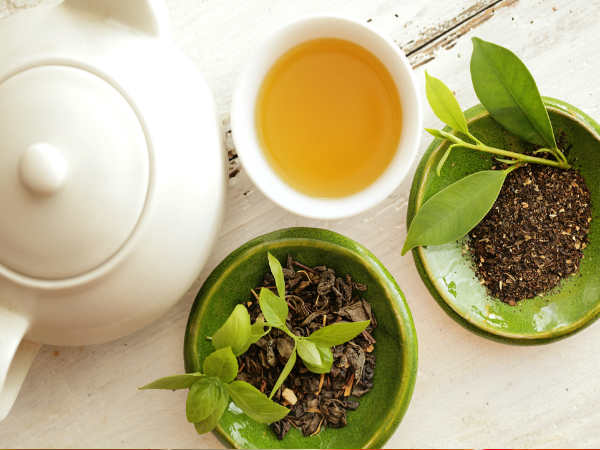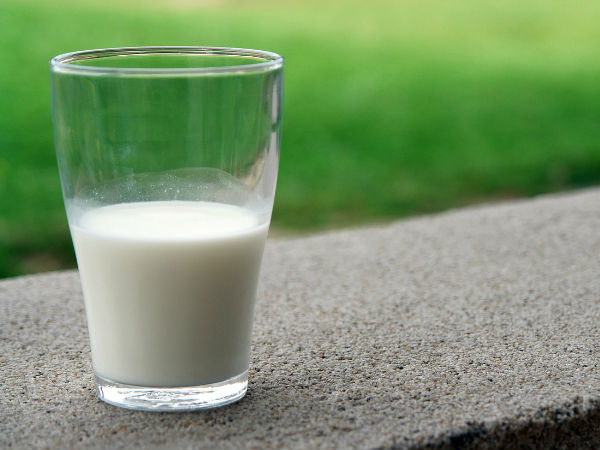
Dietary Tips
1. Include vitamin C
Vitamin C is an antioxidant that helps boost the immune system and the overall health. Including vitamin c rich foods such as lemons, orange, kiwi and spinach in the meal may help ward off winter flu, cold and other diseases and keep you healthy. [1]

2. Increase the protein consumption
Proteins are great ways to reduce the overall caloric consumption, that unintentionally increases during the winter as people tend to consume more food to fight off the cold temperature with fewer physical activities. Protein-rich foods satisfy your hunger and provide you satiety and thus, reduce your overall caloric intake.
 Effective Home Remedies To Restore The Sense Of Smell And Taste
Effective Home Remedies To Restore The Sense Of Smell And Taste

3. Consume warm foods
The food we eat directly affects the temperature of our body. Consuming warm foods during winter may provide you the sensation of warmth and prevent your body’s temperature from dropping down. They are also good for boosting energy to carry out physical activities in the season.

5. Don’t miss out on water
People often miss out on drinking enough water during the winter which may lead to several skin and health problems such as dry skin and kidney stones. [2] Avoid such habits as the body requires water for proper functioning even in the cold weather. Consume at least six glasses of water (warm water optional) to stay healthy.

7. Drink herbal teas
Herbal teas made of herbs and spices such as ginger, cinnamon, chamomile, licorice and thyme are best to provide winter wellness. They help fight the chillness and are wonders for the immune system and other cold symptoms such as sore throat and cough. Avoid adding sugar to herbal teas.

8. Say no to fatty foods
Fatty foods cause fat build-up which gets stored in the body. In the absence of enough workouts, the stored fats cause multiple health issues such as obesity, heart diseases, high cholesterol and digestive problems like diarrhea and stomach infections.

9. Consume healthy spices
Winter spices such as turmeric, black pepper, cinnamon, ginger and fenugreek are rich in antioxidants which may help in a faster weight loss process. These spices also keep common cold at bay and may prevent the immune system from dysfunction. [4]

10. Wine can be beneficial
Wine can be the best culinary ingredient during the winters. Pairing wine in certain foods like sauce and meat may help lift the flavour of the dish. A study talks about the potential vascular effects of red wine when ingested during the winter season. Wine is beneficial for heart health and proper blood circulation. [5] However, prevent the overconsumption.

11. Substitute coconut milk
Substitute coconut milk during the season as it is thick and rich in calories and fatty acids. It may take longer to digest and cause stomach problems such as bloating or diarrhoea. Instead add skimmed milk or yogurt to your dishes as they are healthier choices.

13. Start with warm-ups
During winter, the muscles tend to get tight due to cold temperature and fewer body movements. Therefore, before starting on exercises, it is best to do warm-ups first, especially dynamic work-up exercises to lower the risk of sprains due to sudden movement.
READ RELATED: Avocado Oil: Healthiest Oil on the Planet?

14. Start cycling
Cars are comfortable and cosy and may prevent you from the cold outside, but cycling will keep you warm and fit and will make for the maximum of your physical activities. Remember, before going out for cycling during the winter, insulate yourself properly by wearing protective gears. [7]

15. Wear synthetic fibres
When you sweat during workouts, activewear made of the cotton tends to absorb the sweat and leaves you wet and cold, thus increasing the risk of hypothermia. Prevent this by wearing workout dresses made of synthetic fibres as they do not hold the moisture and prevent your body temperature from falling down.
 14 Antioxidant-Rich Foods For Pregnant Women
14 Antioxidant-Rich Foods For Pregnant Women

16. Wear dark-coloured clothes
The effect of different colours on temperature regulation is controversial. However, many studies say that dark colours tend to absorb the heat while light colours reflect the heat. Therefore, prefer wearing dark-coloured activewear or jacket while going for outdoor physical activities as they may help keep you warm and cosy. It is best to opt for attires with blinking corners if you are sharing roads with motorists for proper visibility. [8]
 Can Apples Help Prevent The Risk Of Prostate Cancer?
Can Apples Help Prevent The Risk Of Prostate Cancer?

17. Protect your nose, ears and toes
Whenever the temperature drops, the body starts conserving heat and energy by minimising the blood flow to extremities such as nose, ears and toes. This may sometimes lead to frostbite in the aforementioned body areas. Therefore, it is better to cover your nose with a mask (as it is also a COVID-19 season), ears with scarf and toes with shoes before going out for workouts.

Other Healthy Tips
18. Always carry a hand sanitiser
The COVID-19 pandemic is infecting millions of people globally. As advised by the WHO, CDC and many other reputed health institutions, hand hygiene and wearing masks are the two prominent needs to prevent the virus from spreading. Always carry a hand sanitiser and use it at intervals, especially before eating or touching your eyes. [9]

19. Get enough sunlight
Sunlight is a great vitamin D source which contributes to stronger bones and overall health. It also plays an important role in regulating a hormone called serotonin which is responsible for good mood, happiness and well-being of a person. Get enough sunlight as it helps keep you warm along with providing needed health benefits.

20. Avoid daytime sleepiness
Sleep helps heal and repair the injured cells and tissues, reduce incidences of mental health issues such as stress, and lower the risk of chronic diseases. Night sleep is very important for health. However, laziness and chilly temperature can cause excessive daytime sleepiness which may interfere with the night sleep. Prevent yourself from the prior by indulging in some activities and sleep tight at night.
 15 Choline-Rich Foods For Pregnant Women
15 Choline-Rich Foods For Pregnant Women

21. Wear winter clothes
Winter clothes such as jackets, pullovers, scarfs and hats help excessive heat loss from the body. Such clothes are made of wool and give you a feeling of warmth and cosiness during the winter. If you suffer from acute joint pain in the winters, winter clothes may help prevent related complications.

22. Oil before shower
Oiling before shower helps seal the moisture in the skin and ensures that not much moisture is lost from the skin during the bathing. You can do this by using a body oil or simply, coconut or mustard oil before the shower.
Source:


 Can Makhanas (Fox Nuts) Help Prevent And Manage Diabetes?
Can Makhanas (Fox Nuts) Help Prevent And Manage Diabetes?





